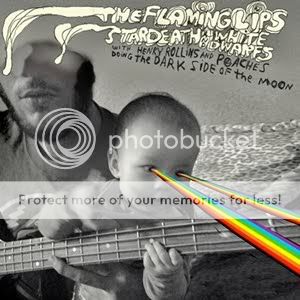As well as being a member of The Semantics with Zak Starkey (who recorded just one album, which gathered an exclusively Japanese release), throughout the 90s, Will Owsley was a hard working session musician. His extensive session work eventually funded a home studio, where he recorded this self-titled debut. It first came to my attention back in 1999, when my friend Rich – a massive Jellyfish fan – raved about it. I was immediately struck by its opening track’s marriage of punchy rhythms and power pop hooks.
That opening track, ‘Oh No The Radio’, is an almost perfect representation of the edgier end of the power pop spectrum. Driven by its chiming guitars, it features pleasing key changes alongside some wonderful Beatle-inspired harmony vocals. It’s a great example of the type of power pop Sugarbomb would become cult figures for at a similar time – it’s late 90s brilliance only equalled by Jason Falkner’s ‘Author Unknown’ (a fantastic track which opens his otherwise maddeningly inconsistent ‘Do You Still Feel’ album) and ‘Pretty Pictures’ by Blinker The Star (whose ‘August Everywhere’ featured a couple of power pop gems, but otherwise remained an ordinary – if well executed – indie-rock style release). ‘Oh No The Radio’ ensures Owsley’s debut demands instant attention – a tongue in cheek lyric helping things along the way. The Cars-esque rhythm guitars used during ‘I’m Alright’ display another all too obvious influence, but these in turn are contrasted by a rather rockier chorus. Interestingly here, the chorus style is comparable to the best moments of Ty Tabor’s Jughead project, although this Owsley album was released some three years previously.
A re-recorded version of a Semantics track,‘The Sky Is Falling’ comes complete with a serious amount of layers and overdubs, it’s off-kilter qualities evoking ‘Magical Mystery Tour’ era Beatles and Jason Falkner’s stronger works. Once again, it uses a vocal style which evokes Ty Tabor and while most of the track uses a very much a tried-and-tested formula, the end result is great. ‘Sentimental Favorite’ takes things down a notch. Owsley’s lead vocal is suitably heartfelt, but it’s the addition of the multi-tracked backing harmonies which give the track its real spirit. The electric piano and altogether softer arrangement may call Crowded House to mind for some listeners, those more in the know will realise this is a dead ringer for those Christian power pop champions PFR (whose long-time producer Jimmie Lee Sloas would also work with Owsley at a later date).
Although comparisons are unavoidable, most of this album is far punchier than most of Jellyfish’s best work. However, ‘Sonny Boy’ driven by a bouncy piano and a marching-on the-spot rhythm has a strong Ben Folds plays Jellyfish quality, which is likely to gain approval from anyone looking for power pop in a more purist form. (it’s also worth noting here that Folds had been an original member of The Semantics; it’s likely Owsley recorded this as a homage to Ben’s late 90s musical direction). Likewise, ‘Uncle John’s Farm’ also comes close to genre perfection with its fantastic use of staccato piano and harmony vocals. Again, any Beatle-isms, Todd Rundgren or 10cc influences are hard to miss. ‘Zavelow House’ steps things up with a slightly rockier edge. There are hints of Matthew Sweet here too; in fact, this album has been compared elsewhere to Matthew Sweet, but rather negatively. That’s unfair to Owsley in the extreme: as much as I love Matthew Sweet, this album manages to remain so much more consistent than many of Sweet’s works, despite remaining somewhat derivative of other artists. ‘Zavelow House’ also employs a couple of retro synth solo which would make Greg Hawkes of The Cars proud.
There are Beatles influences abound during the slow ‘Coming Up Roses’ (another track with roots in Owsley’s Semantics days). The chiming guitars during the verses have a slightly discordant quality and vocally Owsley settles somewhere between a tuneful Lennon-ism and the aforementioned Ty Tabor. A string break midway adds an extra layer, but there’s a feeling that despite some top notch ‘na na na’s, it’s all a little by-numbers. Another reflective number, ‘Good Old Days’ works far better, with excellent use of acoustic guitar and harmony vocals – it’s another track which would have been perfectly suited to PFR and could fit snugly onto either of their ‘Great Lengths’ or ‘Goldie’s Last Day’ albums.
Rather surprisingly upon its release in 1999, this debut did not go unnoticed, as so many similar releases had previously – it received a Grammy nomination for “best engineered album”. So many years later, it’s an enjoyable and surprisingly enduring album which deserves repeated listens. Given the Grammy nomination and quality of the material on show, it surely deserves to be better known. If you’re a power pop fan, Owsley’s debut certainly won’t give you any great musical surprises, but regardless of its by numbers nature it’s fab. The belated follow-up album ‘The Hard Way’ (released in 2004) has its moments too.
Despite the feel-good nature of his arrangements, our story ends on a downbeat note: In April 2010, Will Owsley took his own life. He was clearly a man with great potential and highly respected by other musicians. If you own either of the Owsley discs, make sure you give them a spin every so often. Make sure they get heard by others who may enjoy them and help keep Owsley’s memory alive.
May 2010




